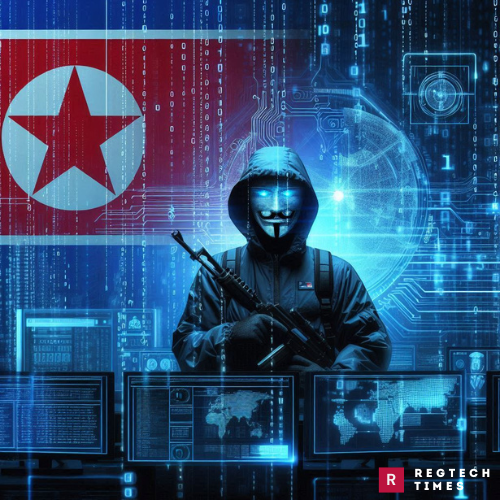South Korea is grappling with a significant cybersecurity crisis, triggered by recent revelations that North Korean hackers have successfully stolen critical military technology details. This alarming situation has prompted urgent calls from South Korea’s People Power Party (PPP) for comprehensive cybersecurity reforms to safeguard national security.
Details of the Breach by North Korean Hackers
Recent breaches have exposed vulnerabilities in South Korea’s defence sector, with North Korean hackers reportedly compromising key information on the K2 battle tank and technical data concerning the Baekdu and Geumgang reconnaissance aircraft.
The sensitive data was allegedly obtained through a new tactic: targeting smaller subcontractors responsible for crucial defense-related documentation. This breach highlights how North Korean hackers exploit the supply chain to access high-value information.
Legislative Response to North Korean Hackers
The PPP has responded to these incidents with a call for robust legislative action. They are advocating for the enactment of a Basic Cybersecurity Law, which would establish comprehensive measures to protect sensitive military and intelligence data from North Korean hackers. Additionally, the party is pushing for an expansion of existing espionage laws to better address threats from foreign nations and impose stricter penalties on industrial spies.
South Korea is Emerging as Weapon Superpower with KF21 Aviation Engine Technology
One of the key revelations from the recent breach is that the K2 battle tank plans were allegedly leaked by employees at a contractor, who reportedly accepted payments in exchange for the sensitive information. This incident highlights the growing sophistication of North Korean hackers and their tactics, as well as the need for enhanced security measures at every level of the defense procurement process.
The Broader Context: North Korean Hackers’ Cyber Activities
North Korean hackers have been a growing concern for the international community. Last month, a joint advisory issued by the UK, US, and South Korean governments revealed that a state-sponsored threat group known as Andariel had successfully compromised critical national infrastructure (CNI) organizations. These cyber-attacks targeted sectors such as defense, aerospace, energy, nuclear, and engineering, aiming to obtain classified technical information and intellectual property. The advisory emphasized that North Korean hackers are increasingly willing to go to great lengths to advance their military and nuclear programs through cyber means.
South Korea’s Bold Move: Agent Responsible for Intelligence Leak Arrested
The Need for Improved Security Measures
The PPP’s proposed cybersecurity reforms reflect a broader recognition of the escalating threat posed by North Korean hackers. The Basic Cybersecurity Law would seek to bolster defenses against digital intrusions and ensure that sensitive information is better protected from potential breaches. By expanding espionage laws to include foreign threats and imposing harsher penalties on those involved in leaking military technology, South Korea aims to create a more secure environment for its defense and intelligence operations.
The recent breaches also highlight the need for improved security measures at the subcontractor level. By targeting smaller companies that work with South Korea’s Defense Acquisition Program Administration (DAPA), North Korean hackers have exploited vulnerabilities in the supply chain. This strategy of targeting smaller, less secure entities may become increasingly common, making it essential for all organizations involved in defense procurement to enhance their cybersecurity protocols.
The ORB Tactic: China’s Sinister Cyber Espionage Ascendancy
International Collaboration and Response
The international community’s response to North Korean hackers’ activities has been one of heightened vigilance and cooperation. The joint advisory from the UK, US, and South Korea emphasizes the importance of global collaboration in addressing the threat posed by state-sponsored cyber actors. By sharing information and coordinating efforts, nations can better defend against and respond to these sophisticated cyber threats.
The recent breaches involving North Korean hackers have exposed critical vulnerabilities in South Korea’s defense sector and highlighted the urgent need for stronger cybersecurity measures. The PPP’s call for new legislation and stricter penalties reflects a proactive approach to safeguarding national security and protecting sensitive information from malicious actors. As cyber-espionage continues to evolve, it is crucial for countries to remain vigilant and adapt their strategies to counter emerging threats effectively. The proposed reforms represent a significant step in fortifying South Korea’s defenses and ensuring that its military technology remains secure in the face of increasingly sophisticated cyber threats from North Korean hackers.


